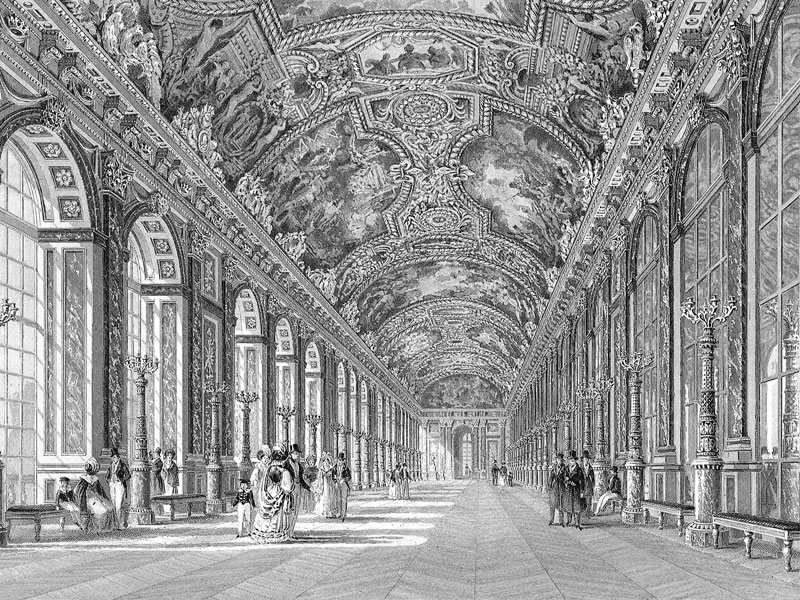Makers of Versailles: from Glory and Excess to Revolution and Resurrection – four online talks by Professor Antony Spawforth
posted on 29/01/21
The Palace of Versailles as we see it today is stamped with the personalities of a succession of remarkable individuals, from the kings and queens under absolute monarchy who created it, to the curators and custodians who have directed the ambitions of the modern museum in (largely) republican France. Taking a chronological approach, this is a journey through the spectacular royal residence, touching on architecture, interiors and furnishings, the life of the French court, and the major historical events in which it played a part.
They take place every Tuesday from 6–27 April at 4.30pm GMT+1 (11.30am EDT) and, including Q&A, will probably last just under an hour. They are available for viewing for eight weeks after the last episode is streamed.
Register for the webinar series for £55
Frequently asked questions
What methods of payment do you accept?
An electronic invoice will be sent to your e-mail address 1–3 working days after you have completed our registration form. Payment can be made online using AMEX, Apple Pay, Google Pay, MasterCard or Visa.
How do I purchase the webinar series as a gift?
Please contact us specifying how many subscriptions you would like and who they are for (we require their full name and e-mail address). We will invoice you directly, and after we have received your payment we will release the webinar joining instructions to your friend(s) or family member(s).
Can I purchase a single episode?
No, unfortunately not. The series must be purchased in full.
How do I join the webinar?
An e-mail confirmation will be sent to you after you have paid for your subscription, which includes your unique link for joining the webinar. Reminder e-mails will be sent to you one day and one hour before each event. We recommend that you download the Zoom software in advance of the first webinar.
Can I watch the live broadcast(s) on more than one device?
Only one device can be connected to the live broadcast(s) at any one time. If you wish to purchase a second subscription, please contact us.
What happens if I am unable to attend the live broadcast(s)?
A recording will be uploaded to a dedicated webpage approximately two hours after the live broadcast. For copyright reasons, these recordings cannot be made available indefinitely; access is granted for eight weeks after the final live broadcast of the series.
The talks
1. From Hunting Lodge to the Sun King’s Palace (1624–1715) (6th April)
Pride, paranoia and insecurity are among the reasons given for Louis XIV’s obsessive creation of a new royal palace and seat of government in a rural backwater. This talk examines the profound “reasons of state” that shaped his vision, including France’s international rivalries and civilisational ambitions, suspicion of the high nobility, and a conviction that the king’s glory was France’s.
2. The Age of Madame de Pompadour (1722–1724) (13th April)
Louis XIV’s successor, the handsome Louis XV, was half-hearted about his inherited role as the cynosure of a brilliant court. Louis XV adapted Versailles—still the seat of power—for intimacy with a select few, notably his mistresses. In 1757 there was an attempted regicide. As well as these developments, the talk explores court life and the palace’s varied population under Louis XV.
3. Louis XVI and Marie-Antoinette (1774–1792) (20th April)
Louis XV’s awkward grandson Louis XVI had even less desire to shine in majesty. At Versailles, he preferred private pursuits in his nest of backrooms. His queen, Marie-Antoinette, spent freely on a secluded idyll in the grounds. The court thinned. In 1789 an insoluble hole in the public finances triggered a revolution which forced king and court out of the palace—for good.
4. Versailles Resurrected (1793 until now) (27th April)
Emptied but intact, the palace survived the Revolution. In the 1830s King Louis-Philippe, as obsessed with Versailles as his ancestor Louis XIV, poured money into converting the derelict palace into a museum of “France’s glories”. Since the 1890s curators have sought to resurrect the royal palace—a fascinating story. The talk will also probe the popular impact of Versailles in more recent times.
Register for the webinar series for £55
